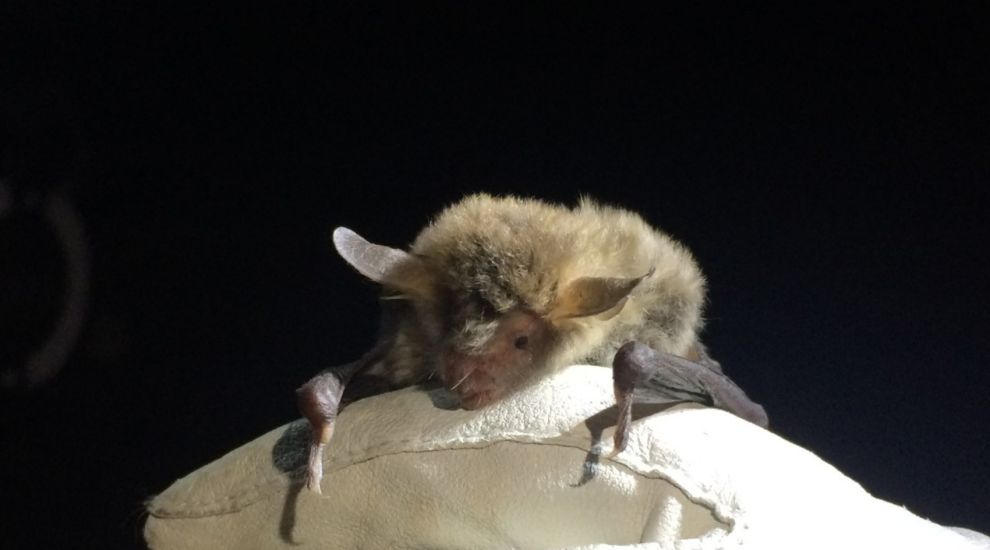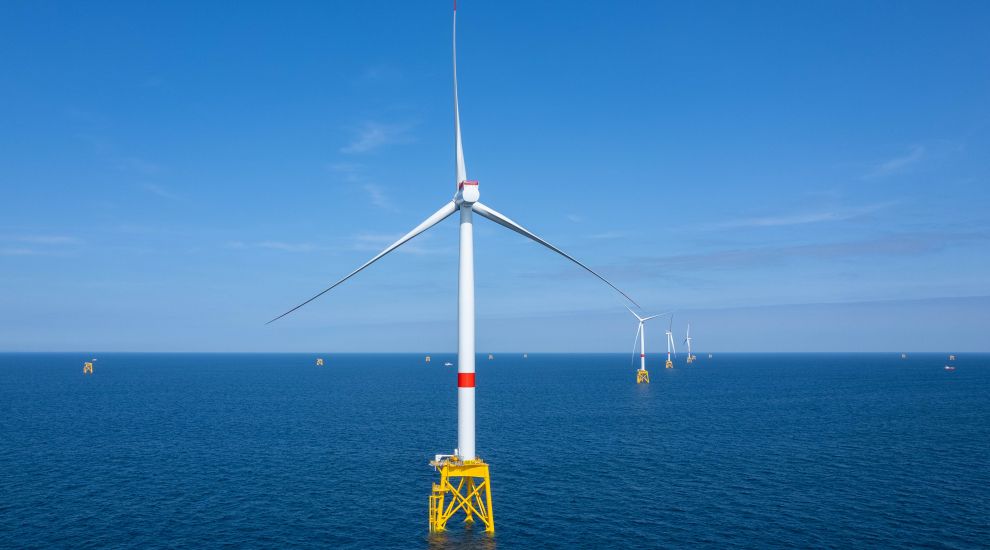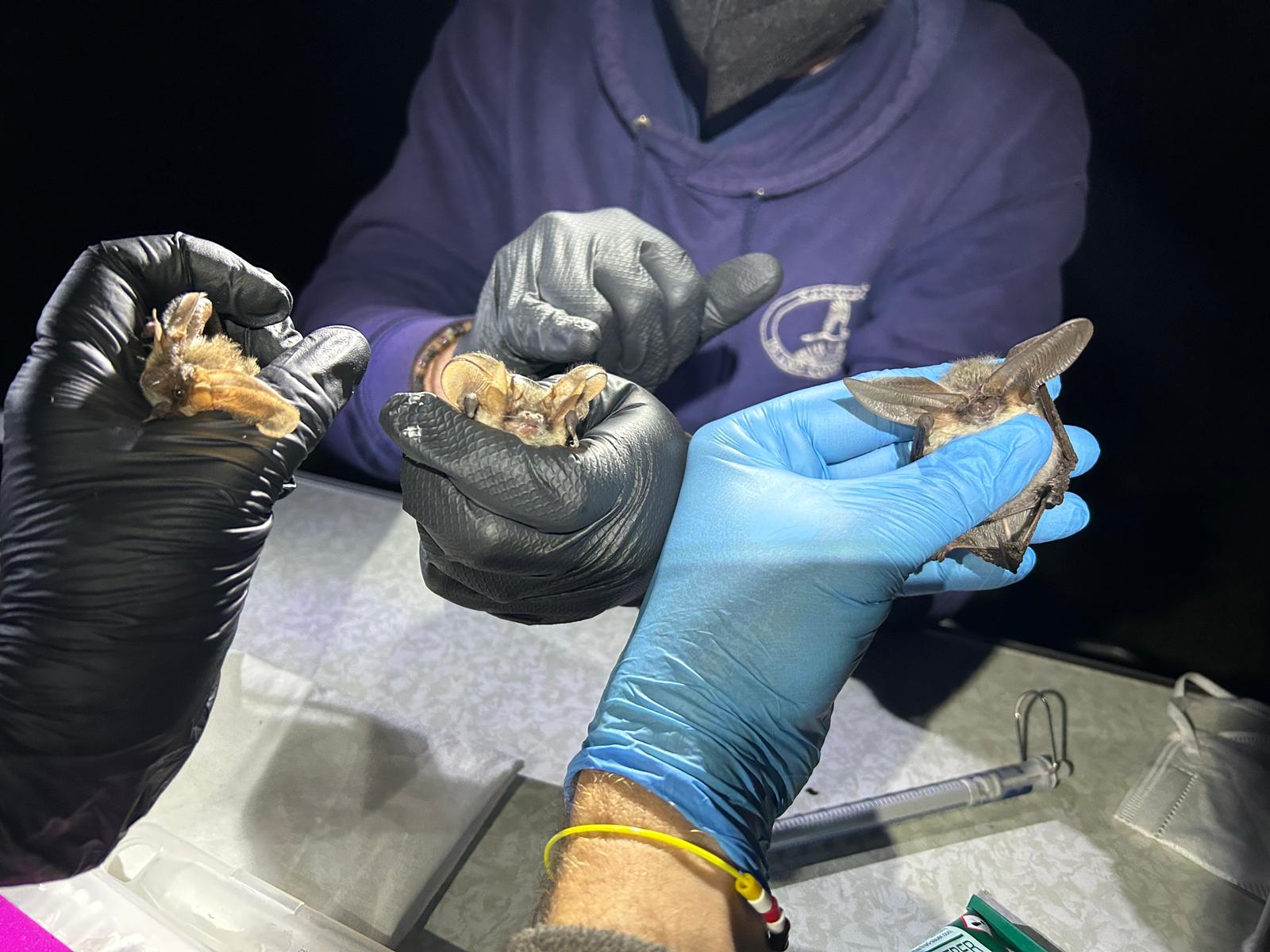


A local conservationist is calling for increased funding to support research on bat populations to help understand the potential threat posed by planned offshore wind farms on these species.
Zoologist and ecologist Amy Louise Hall has argued that understanding how bats use Jersey's territorial waters is "of paramount importance” as the island develops its renewable energy plans.
Dr Hall, who is also chair of the Société Jersiaise Zoology Section and Jersey Bat Group, said: "It is unfortunate that there is limited research funding available locally to help ecologists undertake such studies."

Pictured: Environment Minister Deputy Steve Luce this week confirmed the Government is moving forward with plans to develop an offshore wind.
Dr Hall's comments come after new research revealed that Jersey's offshore reefs may serve as important migratory paths and habitats for various bat species, including long-distance migrants like Nathusius' pipistrelle and Leisler's bat.
The collaborative study, which involved Société Jersiaise, the Jersey Bat Group, and Jersey Marine Conservation, has already identified four bat species using the Les Minquiers reef, located 20km south of Jersey.
Dr Hall argues that further research is needed to understand how bat populations interact with Jersey's coastal and offshore environments — and that this is particularly important given the potential risks the proposed wind farm could pose to the species.
"Wind farms, while essential for reducing carbon emissions, present a unique threat to bats," explained Dr Hall.
"The biodiversity crisis must also be considered, but we cannot cause a cumulative impact on already declining bat populations."

Pictured: A tiny Pipistrelle bat in the hand of Dr Hall.
She explained that hundreds of thousands of bats die each year as a result of collisions with wind turbine blades, but also from fatal internal injuries caused by sudden air pressure changes near them.
She said that a 2016 study estimated that onshore wind farms in the UK could be killing around 80,000 bats per year.
Offshore, the impact could be even more severe as turbines are placed directly in the paths of migratory bat species.
To mitigate these risks, the zoologist argued that environmental impact assessments will be needed during the planning stage and that robust monitoring will be essential if a farm is built.
To avoid collisions, Dr Hall explained that the turbine blade could be positioned at an angle, or the turbines could rotate at a lower speed when bats are most active.
But before any of this is implemented, the zoologist said that further research is needed to understand the behaviour of these bats better.

Pictured: Four different species of bats are among the regular visitors to Les Minquiers.
She said: "It's good to understand what you're looking at before you have to go down those particular mitigation hierarchies.
"Firstly, you avoid, after that, you'll mitigate."
But without adequate funding for research, the full extent of Jersey's bat use in the proposed wind farm area remains unknown.
She said: "With the talk of wind farms locally, understanding the use of the territorial waters by bats and the main migratory roots of these species of paramount importance."
Environment Minister Deputy Steve Luce this week confirmed the Government is moving forward with plans to develop an offshore wind farm.
This comes after politicians agreed in April to further investigate the opportunity to develop a wind farm, which could generate up to 3,796 gigawatts of power per year, in the southwest of the island's waters.

Pictured: Bats being handled under licence by trained ecologists. (Amy Hall)
The decision followed a public consultation, which ran from November 2023 to February 2024.
The proposition, which the States Assembly approved by 40 votes to one, also explained that leasing of seabed rights would be the first commercial stage of the project.
"This is an important project," the Environment Minister said this week.
"We are working to resolve outstanding questions from the in-principle debate in April, so we can make informed decisions when we return to the Assembly."
The Minister also told the Assembly that a key next step will be to seek support from States Members to lease Jersey's seabed by the end of 2025.
Comments
Comments on this story express the views of the commentator only, not Bailiwick Publishing. We are unable to guarantee the accuracy of any of those comments.